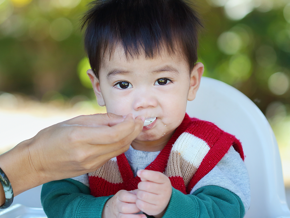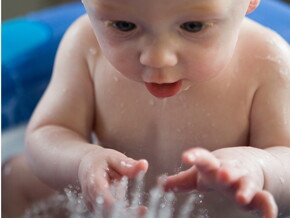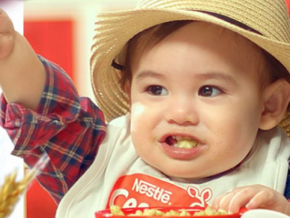
Supporting Brain Development in C-Section Babies with Proven Nutrients
A new study shows that babies born through C-section may have less brain white matter and myelination during early childhood compared to babies delivered vaginally.1
However, as C-sections are becoming more common for various medical reasons, is there anything parents can do to support their C-section babies’ brain development?
The researchers point to two things: nutrition and environmental factors. These can help boost a crucial process in the brain called Myelination.
What is myelination?
Myelination is a vital process in the brain that involves the growth of white matter. It’s similar to covering a wire with insulation to improve its efficiency.
Nerves in the brain act as wires that transmit messages throughout the body. To function at their best, the nerve cells must be wrapped in a coating of myelin, a lipid-rich substance. This myelin sheath acts as insulation for the wires, allowing messages to travel more quickly and efficiently along the nerves.
In the same way, insulation helps electricity flow smoothly along a wire. Therefore, myelination is crucial for quick and efficient thinking, feeling, and movement.
Myelination is responsible for language acquisition in young children. A separate study found that the higher the myelination, the better the language development. Researchers noted that the characteristic rapid development in toddlers’ vocabulary occurs only after myelination occurs in the brain.2
Meanwhile, the opposite, impaired myelination or damaged myelin, has been linked to cognitive deficits.
C-section and less myelin
One possible explanation for the difference in white matter size could be the exposure of C-section babies to different types of bacteria than those born through natural delivery.
Babies born vaginally get exposed to a diverse range of bacteria present in the mother’s birth canal, which is important for a strong immune system.2 However, C-section babies get bacteria similar to those found on the skin surface, which is less beneficial than the former. Exposure to the mother’s vaginal bacteria is essential for the establishment of the newborn’s microbial flora, which influences their immune system.1
Additionally, researchers suggest that the quality of bacteria in a newborn’s gut can affect certain functions, including immune activation and the development of neural pathways, which are crucial for brain development.
Supporting myelination
Certain nutrients have been clinically proven to support myelination. The researchers noted that nutrients found in breast milk may drive enough changes to offset differences in brain white matter size caused by cesarean delivery.
The five major phospholipids found in human milk are vital for brain development4. Two of the five major phospholipids, alongside other nutrients, are critical in supporting myelination.2
A study found that infants who consumed milk with phospholipids and Human Milk Oligosaccharides (HMO), also found in breast milk, were clinically shown to increase myelination by up to 36%.2
Besides boosting C-section babies’ nutrition, the researchers also pointed out the impact of the environment. For example, brain development in healthy children has been associated with sleep duration, diet, physical activity, and television viewing time. However, these variables were not considered in the study.1
As C-section deliveries become more medically necessary, researchers found a difference in the size of babies’ brain white matter. They also found that C-section babies can catch up to the brain development of vaginally delivered babies through nutrition, such as breastfeeding or drinking milk with phospholipids and environmental factors, like sleep.
References:
1. S.C. Deoni, et al. Cesarean delivery impacts infant brain development. American Journal of Neuroradiology, January 2019. Pages 169-177.
2. Coelho GDP, Ayres LFA, Barreto DS, Henriques BD, Prado MRMC, Passos CMD. Acquisition of microbiota according to the type of birth: an integrative review. Rev Lat Am Enfermagem. 2021 Jul 19;29:e3446. doi: 10.1590/1518.8345.4466.3446. PMID: 34287544; PMCID: PMC8294792.
3. Pujol J, Soriano-Mas C, Ortiz H, et al. Myelination of language-related areas in the developing brain. Neurology 2006, 66:339-343.
4. Marina Schverer, Siobhain M. O'Mahony, Kenneth J. O’Riordan, Francisco Donoso, Bernard L. Roy, Catherine Stanton, Timothy G. Dinan, Harriët Schellekens, John F. Cryan, Dietary phospholipids: Role in cognitive processes across the lifespan, Neuroscience & Biobehavioral Reviews, Volume 111, 2020, Pages 183-193,ISSN 0149-7634,
Related articles


















